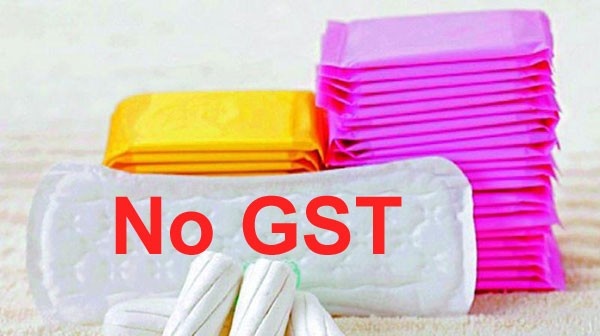In a judgement made by the Goods and Service Tax (GST) Council, as part of its 28th Meeting, sanitary napkins were exempted from being taxed – after a year in protests, this is a welcome change, making the product cheaper compared to its current pricing. Though, various other materials that go into making the final product will be taxed.
Previously, sanitary pads were taxed under the bracket of 12 per cent, which has now been cut down to zero. When asked about the changes in price reduction, Piyush Goyal, Union Minister for Railways, Coal, Finance & Corporate Affairs stated the calculations have provided that the input tax credit is about 3 to 4 per cent, with the Government ensuring a lower price for the end product.
“For instance, exempting sanitary napkins from GST – which are currently taxed at 12 percent – should reduce their cost. However, the reduction may not be the entire 12 percent as credit on inputs would not be available, and become a cost,” said Abhishek Jain, Partner, EY India. (via Bloomberg Quint)
The domain of health and sanitation is an important area of intervention and to deliberate meaningful steps to tackling major challenges, particularly in the context of menstruation. In terms of Corporate Social Responsibility (CSR) spending, it was reported in April 2018, according to data analysed by CII, that Health and Sanitation projects amount for 25.2 per cent of the spending a done by India Inc. (1,552 companies) in fiscal 2017.
While, there are no specific tax exemptions when it comes to CSR spending by corporate houses, existing areas in Schedule VII including “contributions to Prime Minister’s Relief Fund, scientific research, rural development projects, skill development projects, agricultural extension projects, etc.” (via Ministry of Corporate Affairs) are exempted under the Income Tax Act, 1961.
The manner in which the decision on Tuesday by the GST Council took place continues to highlight our misconduct with understanding the household challenges, and that lies closer to the empowered women, we want to see as an inclusive society. In our vision and interests to create areas of greater female participation, why is it that such basics of life – to one’s health and sanitation requirements – need to see the courts, countless protests on streets, arguments and challenges that hardly justify the greater cause. This is another incident, and there is a long list, wherein we have failed to identify our core problems, much of which has to deal with an ongoing hardship with agendas and moral as well as social stigmas very much ingrained inside us.
It brings and raises the questions again about similar problems, we have now been so ‘accustomed’ to. The result is not the only matter in question here, because it is the process through which we have reached here that has brought us with a grave picture of our reality, making us closer and only accepting to choices we have made in coming this far.
While much has to be seen, in the coming time, in what ways will certain decisions made by the Government as well as private and non-government organisations can bring the desired implications to consumer products in a socially scalable manner, we deal with areas that are left out of discussions time and again. For example: Gender Budgeting.
In bringing ‘necessary products’ at affordable market prices to consumers, there are a host of challenges that brings greater implications for the manufacturer and end customer. While tackling this, the GST Council should be required to come up with solutions to problems that are not just long-overdue, but answers sustainable enough to fight the bigger battles present in the country’s social structure.
With inputs from The Wire, The Indian Express and Business Insider

